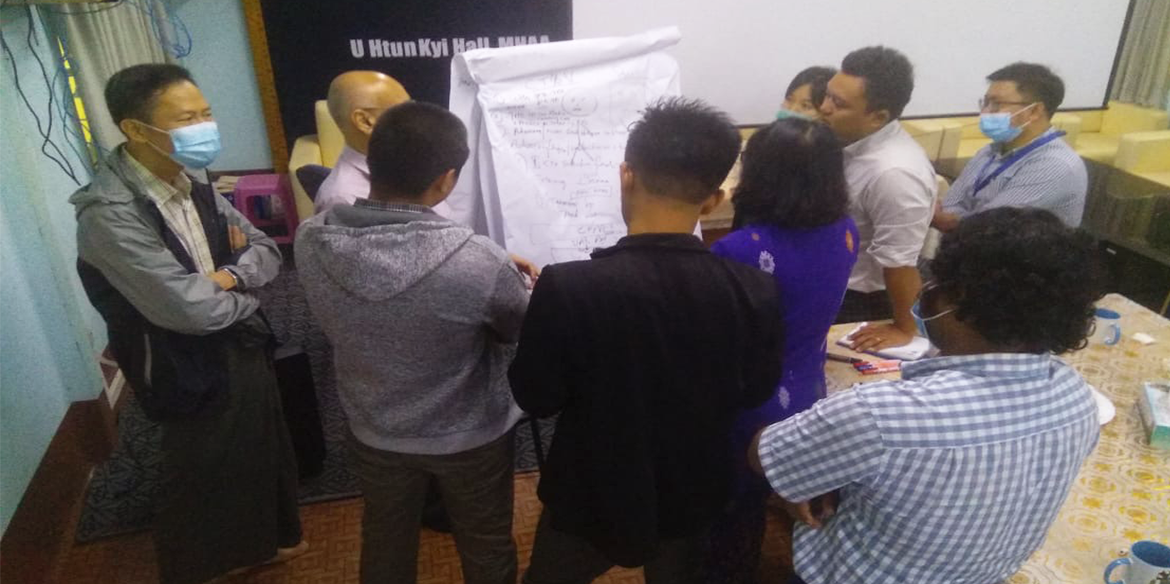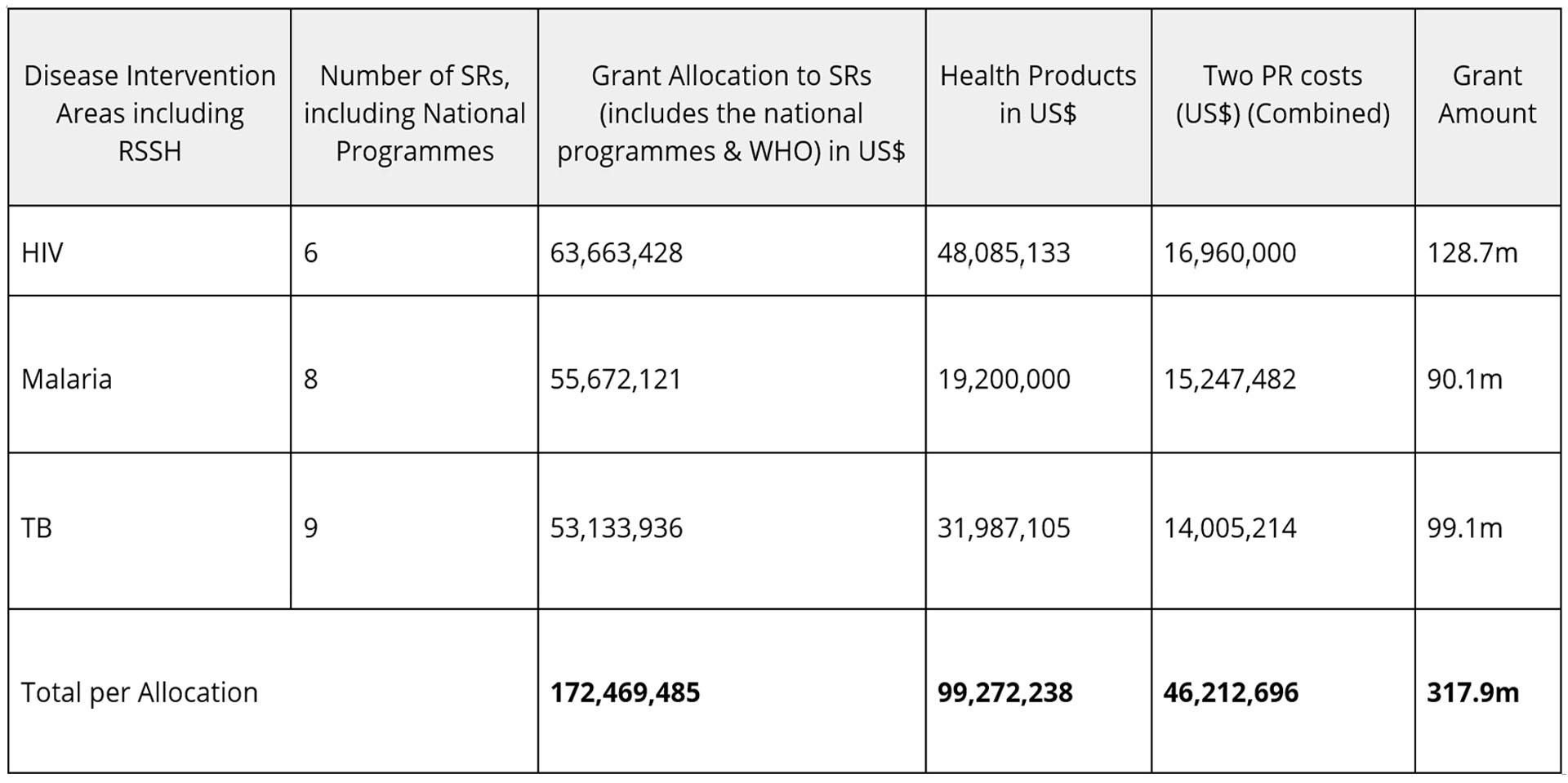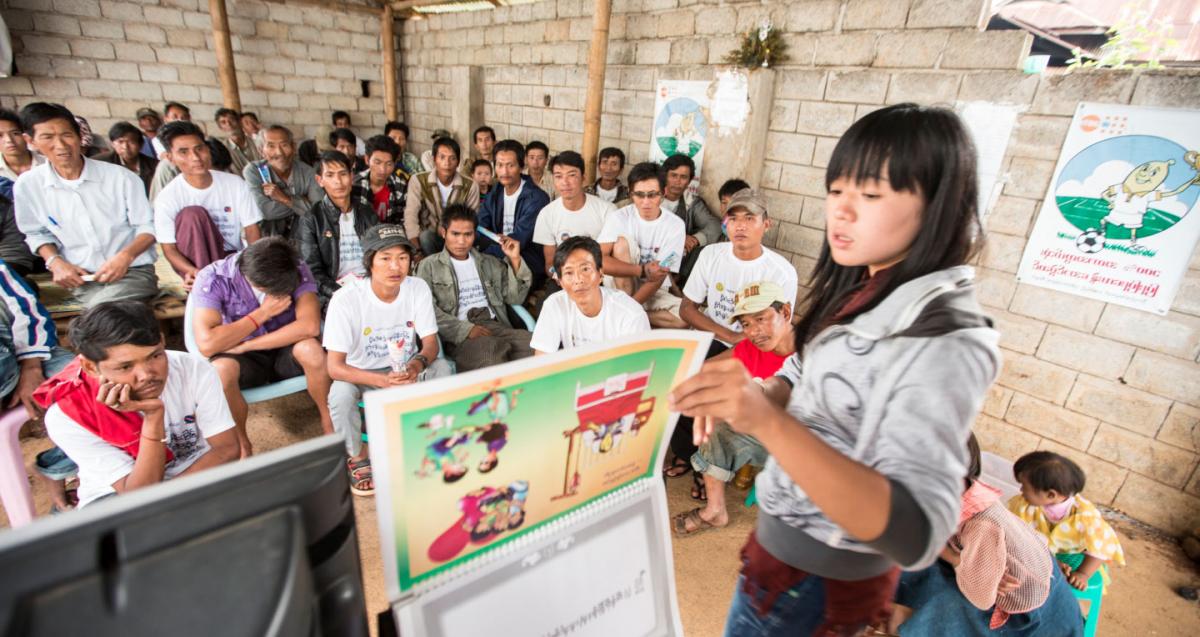The grant making phase follows the development and submission of a new funding request to the Global Fund for the period 2021 -2023, which was sent on 23rd March 2020. As part of the review of the individual countries and Regional Funding Request submissions, the GF assembles the Technical Review Panel (TRP) that reviews the funding request and recommends approval.
The approval notification by the Country Team was sent to the Communicable Disease Executive Working Group (CD-ExWG), Myanmar’s equivalent of the CCM, on 8th June 2020. The CD-ExWG immediately communicated this information to the Technical Strategic and Advisory Groups (TSGs) across the three diseases who were then asked to discuss the feedback received, and to take immediate steps to begin grant making.
Based on recommendations received from the specific disease TSGs, the CD-ExWG organized a meeting on 10th June 2020 to review the TSGs proposals for the selection of Sub-recipients. Together with the national disease programmes, sub-recipients work with the PRs to implement the grants. The sub-recipients are made up of international and local non-governmental organizations, civil-society and community-based organizations.
This year, due to the Covid-19 emergency, the CD-ExWG adopted an abridged process to select the SRs based on their implementation capacity and past performance during the 2018 - 2020 implementation period. The SR Selection Committee carried out a thorough validation process, and made recommendations to the CD-ExWG which were endorsed. The Selection Committee worked between 5 - 7 June, and recommended about twenty SRs to UNOPS PR to begin grant making, which includes the development of budgets, the work plans and forecasting and quantification of the drugs and supplies.
The grant making start off workshop was therefore held on June 22nd 2020 with the participation of all the SRs. The meeting provided UNOPS PR the opportunity to 1) share the budgeting template and guidelines to all SRs, 2) share the GF documents and requirements for Grant making and 3) agree on the final time-line with the SRs to complete the grant documents in readiness for the Local Fund Agent (LFA) review.
The grant making work sessions were held mindful of the COVID-19 emergency measures that have some restrictions in place for in-person meetings and to be in compliance with social distancing guidelines. UNOPS PR constituted three working teams across the three diseases (HIV, Malaria & TB) and drew on the support from the M&E, PSU and PSM teams to visit with the SRs and work with their various grant teams to complete the grant documentation process.
Three deliverables constitute the end products of the grant making process. These include the budget, the annual work plan and the Health Product Management Tool, or HPM. The use of remote working technologies or virtual meetings were also adopted and this facilitated the success achieved with the completion of 90% of the SRs budgets and work plans to date. The individual disease working group sessions were very engaging. They were made up of small group meetings to discuss the programme implementation strategy, agree on national forecast and quantification targets for drugs and medical equipment and other supplies for the implementation of the grants over the 3 years life-span of the grants.




